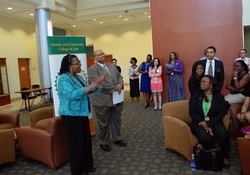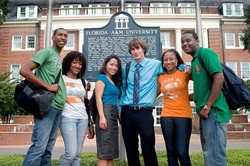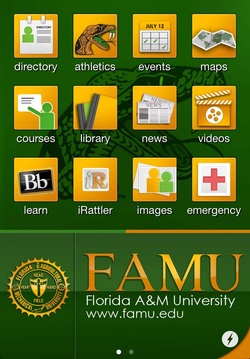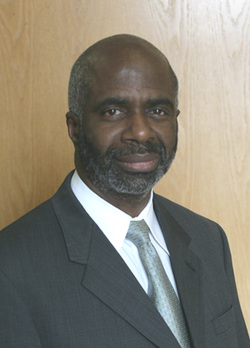
For the first time in the history of the Florida A&M University (FAMU) College of Law, the first-time pass rate of the February 2013 Florida Bar Exam exceeded the state average. At 82.6 percent, the FAMU College of Law beat the state average of 80.2 percent, and also bested five of the eleven schools reported including Florida Coastal, Nova Southeastern and the University of Florida. The score also exceeded the combined passage rate of the non-Florida law schools.
“We are extremely pleased with the efforts of the administration, faculty and students of the FAMU College of Law,” said Larry Robinson, interim president of FAMU. “This news could not have come at a better time. The examination results clearly demonstrate that the right steps are being taken to ensure that our law students are prepared to enter their profession. Congratulations to the FAMU College of Law.”
FAMU Interim Provost Rodner Wright, who also serves as vice president for academic affairs, was also pleased with the nearly 20-point increase in the passage rate. “It is clear that the university is committed to continuous improvement,” Wright said. “That commitment is evident in the hard work of the administration, faculty and staff of the College of Law.”
In addition to exceeding the state average for the first time, this rate represents the first time in FAMU’s history that the College of Law scored above 80 percent for either the February or July Bar Exam. The 82.6 percent rate represents a 17.1 point increase from the prior highest rate for February Bar that was achieved a year ago at 65.5 percent.
“We are very proud of our recent graduates and we commend them for the dedication they have shown to achieve this milestone,” said LeRoy Pernell, College of Law Dean. “These results are a testament to the excellent quality of our curriculum and academic support programs at the FAMU College of Law.”
“We are extremely pleased with the efforts of the administration, faculty and students of the FAMU College of Law,” said Larry Robinson, interim president of FAMU. “This news could not have come at a better time. The examination results clearly demonstrate that the right steps are being taken to ensure that our law students are prepared to enter their profession. Congratulations to the FAMU College of Law.”
FAMU Interim Provost Rodner Wright, who also serves as vice president for academic affairs, was also pleased with the nearly 20-point increase in the passage rate. “It is clear that the university is committed to continuous improvement,” Wright said. “That commitment is evident in the hard work of the administration, faculty and staff of the College of Law.”
In addition to exceeding the state average for the first time, this rate represents the first time in FAMU’s history that the College of Law scored above 80 percent for either the February or July Bar Exam. The 82.6 percent rate represents a 17.1 point increase from the prior highest rate for February Bar that was achieved a year ago at 65.5 percent.
“We are very proud of our recent graduates and we commend them for the dedication they have shown to achieve this milestone,” said LeRoy Pernell, College of Law Dean. “These results are a testament to the excellent quality of our curriculum and academic support programs at the FAMU College of Law.”




 RSS Feed
RSS Feed